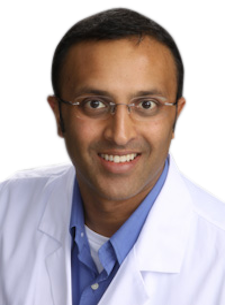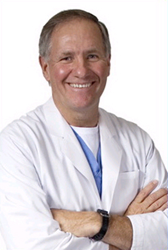Many dentists are learning more about sleep disordered breathing, and hearing discussions on screening for airway. Some have attended a mini residency program or boot camp, but still have unanswered questions. In many ways, adding dental sleep medicine to a practice can feel like one is running two businesses. While they may start with the same patients, treatment and billing can vary greatly.
Let me introduce you to two dentists, Dr. Mayoor Patel and Dr. Ken Berley, both of whom have successfully implemented dental sleep medicine into their practices and share how they did it at The Dental Sleep and Craniofacial Pain Symposium. They have mastered the knowledge needed to handle a myriad of cases, and have developed the processes for dental assistants to utilize. The value of your team attending a symposium with either of these two dentists speaking cannot be overestimated. They deliver valuable and concise how-to information in a clear, easy-to-understand style.
 Dr. Mayoor Patel’s main practice is Craniofacial Pain & Dental Sleep Center of Georgia in Atlanta. His focus is on the treatment of TMD, migraines, facial pain, neck pain, and sleep apnea. He has bridged the gap of working with medical colleagues by helping his patients determine the root cause of their pain. Dr. Patel has extensive knowledge of head and neck anatomy, and he effectively combines sleep disorder treatment with blended medicines. He often says “Taking a detailed history will unravel the mystery of their condition …” because it is very important to him to quickly determine if he can help the patient feel better.
Dr. Mayoor Patel’s main practice is Craniofacial Pain & Dental Sleep Center of Georgia in Atlanta. His focus is on the treatment of TMD, migraines, facial pain, neck pain, and sleep apnea. He has bridged the gap of working with medical colleagues by helping his patients determine the root cause of their pain. Dr. Patel has extensive knowledge of head and neck anatomy, and he effectively combines sleep disorder treatment with blended medicines. He often says “Taking a detailed history will unravel the mystery of their condition …” because it is very important to him to quickly determine if he can help the patient feel better.If you have heard stories of how sleep appliances have made TMJ disorders worse, and it has caused you to shy away from screening for airway, attending one of Dr. Patel’s courses is a must. For those with patients who are not able to tolerate CPAP, he and Dr. David Dillard, MD, have written a book entitled, “Sleep Apnea Hurts, the Cure Doesn’t Have To” which can be found online.
 Dr. Ken Berley’s focus is on improving the health of Northwest Arkansas. He and his wife Patty run a General, Family & Cosmetic Dental practice in Rogers. They have a separate area of the office dedicated to helping patients with sleep disordered breathing (SDB).
Dr. Ken Berley’s focus is on improving the health of Northwest Arkansas. He and his wife Patty run a General, Family & Cosmetic Dental practice in Rogers. They have a separate area of the office dedicated to helping patients with sleep disordered breathing (SDB).
Dr. Berley is a Diplomate of the American Board of Dental Sleep Medicine and also an Attorney. If you have concerns about screening for airway due to liability issues, Dr. Berley will put your mind at ease. In his successful implementation of Sleep Disordered Breathing courses, he shares the legal language and documentation required to offer the best care for your patients while protecting yourself. In fact, Dr. Berley defines success as when medical doctors have your cell number and they text you. He shares how to find and treat patients currently in your practice, and which sleep appliances are best for specific cases.
Patty Berley, who is one of Dr. Berley’s key team members, is an expert on the initial patient interview, team training, and insurance requirements.
The Berley’s are passionate about dental sleep medicine, and believe the best way to provide sleep apnea training to you and your staff is by working together with you in your office. For details, email them at kenberley@yahoo.com or pattyberley@yahoo.com.
The number of people that have Sleep Disordered Breathing and do not know it are in the millions. The impact of this disease on people’s bodies in the form of diabetes, stroke, heart failure, obesity, and hypertension is staggering. Many studies have been completed on the links between bruxism and airway. Using a home sleep monitor that tracks movements of the masseter muscle in conjunction with airway provides dentists with an extra edge for treating their patients.
If you are interested in integrating dental sleep medicine into your practice, I strongly encourage you to attend a Dental Sleep and Craniofacial Pain Symposium to learn from these exceptional dentists.
